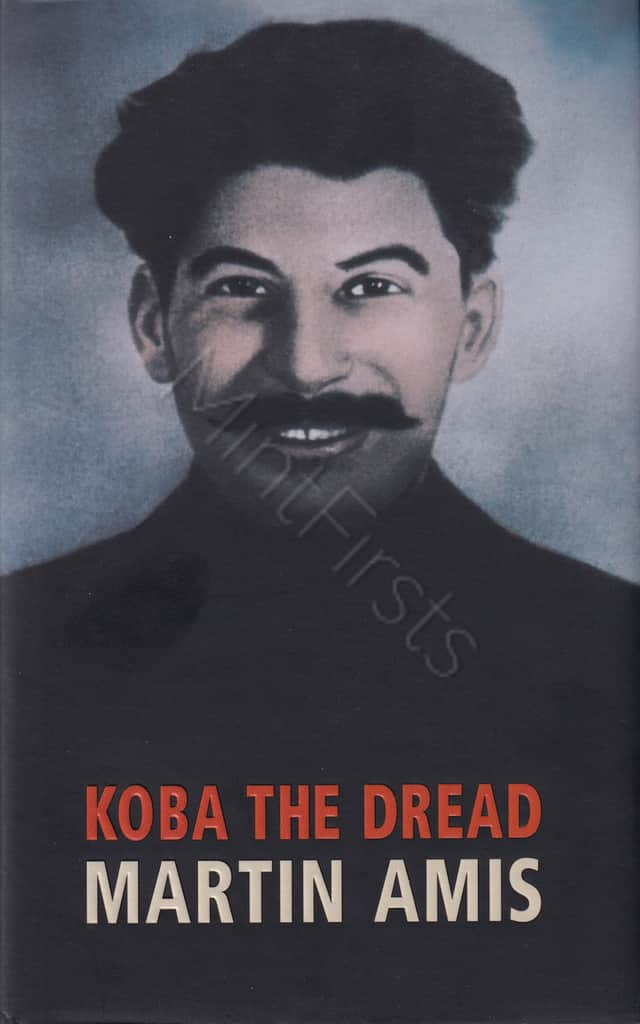Established
2004
Relaunched
2024
Our booksHow we tradeAbout usCredits & thanksYour account
- Home page
- Our books
- How we trade
- About us
- Credits & thanks
- Your account
- Your cart
MENU
Koba the Dread: Laughter and the Twenty Million
Signed first edition of Martin Amis's Koba the Dread

Martin Amis
First edition. 8vo. Pp. viii, 306, [4 (blank)]. Black cloth boards, lettered in silver to spine; navy-blue endpapers. B/w plates, permissions, index.
Signed by Author to title page.
A blend of memoir, biography and political insight, addressing the central paradox of twentieth-century thought: the indulgence of communism by Western intellectuals. Stalin is thought to have said that the death of one person was tragic, the death of a million a mere "statistic." During his long reign, he presided over the murder of more than twenty million of his brutalized subjects, while commanding their loyalty and gaining admirers the world over – including, for a time, Amis's own father. Though a later reactionary, Amis père was – in his own words – 'a Comintern dogsbody' from 1941 to 1956. Yet he would go on to befriend leading Sovietologist, Robert Conquest, whose 1968 book, The Great Terror, was second only to Solzhenitsyn's The Gulag Archipelago in its undermining of the USSR.
The book was afforded a mixed reception, with Michiko Kakutani in The New York Times describing it as, "the narcissistic musings of a spoiled, upper-middle class litterateur who has never known the kind of real suffering Stalin's victims did," while Publishers Weekly opining that Amis "relates passionately a story that needs to be told, the history of a regime that murdered its own people in order to build a better future for them." It also occasioned a public rift in the pages of The Atlantic between Amis and close friend and polemicist, Christopher Hitchens, which was mended, before the latter succumbed to oesophageal cancer. Koba the Dread is Amis's rebuttal of Stalin's infamous aphorism.
special feature
signed
edition
first edition
format
hardback
publisher
Jonathan Cape
published in
London
publication year
2002
ISBN
0224063030
height × width
22.5 × 14.5 cm
genre
essays
language
English
binding style
cloth
binding state
original binding
condition . . .
mint
of jacket
mint
GBP£ 75
EUR€ 87.50
USD$ 101
ref.6Q8 9U7